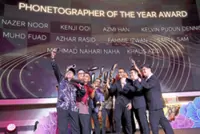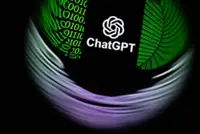As reality becomes more augmented and virtual, 5G provides a solid backbone
AS the world progresses towards a greater convergence of disparate technologies into a more intelligent and connected world, so too the way we learn things in the oncoming industrial revolution.
For one thing, the nature of work will shift significantly, with repetitious and manually applied jobs being replaced by automated processes that are driven by artificial intelligence (AI).
In terms of teaching and learning, more interactive and immersive ways will find their way into classrooms, and technologies such as virtual reality (VR) and augmented reality (AR) would become key components in ushering in a new way of acquiring knowledge.
When backed by a robust 5G broadband connection that not only offers speed and larger data packages to be streamed, the low latency reduces lag, making the system perfect for AR and VR.
Enhanced reality
According to semiconductor producer Qualcomm, 5G enhanced mobile broadband is required to take AR/VR experiences to the next level.
That is because 5G provides for extreme throughput with multi-giga bauds-per-second, offers ultra-low latency as low as single digits in milliseconds, and a uniform experience.
Using AR, smartphone and tablet apps determine the surroundings and provide additional information on screen, making it an excellent marketing tool by companies, such as with Walmart, in the United States.
New York City subway travellers use the Tunnel Vision Apple iPhone app to track train progress and capacity.
AR is great as a subtle informational tool in museums, libraries and historical sites, as well as in tourism.
New learning methods
For some applications, industries take a more VR approach for its more immersive experience.
Users can take a deep dive by totally surrendering his whole physical reality for one generated through a headgear, which feeds his senses with sights and sounds of the virtual world.
One good use of VR is in training simulations, much like in corporate and sales training, as shown by VirtualSpeech.
It is also used to train interns in medical procedures, defence forces in dangerous situations, and offshore oil rig teams before going on location.
In each scenario, VR provides employees a realistic, safe learning environment.
Potential of 5G in education
As the nation’s leading converged solutions company, Maxis is committed to providing the best 5G innovation to benefit the people and business in Malaysia.
The company has been participating in MCMC’s 5G roadshow nationwide to showcase 5G capabilities and helping the public to understand the potential of 5G.

Students interacting with the lessons presented in the eKelas programme at the Penang Digital Library, before the movement control order was enforced.
To provide a glimpse into the future of 5G in education, Maxis deployed the use of VR for Science learning in its eKelas programme, with some students at the Pusat Internet Kampung Padang Wahid, Langkawi and the Penang Digital Library, Pulau Pinang.
Powered by 5G, VR brings the curriculum to life by letting students virtually explore the different parts of the human body or animal cells with their hands, all guided by a teacher remotely.
Students put on a VR headset programmed with a unique student-friendly interface, gesture controls, embedded educational resources and simple-to-use teacher controls, which gives them a closer look at various elements in the topic.
Given its immersive properties, students learn experientially, which helps with their understanding and retention of the topic.
Maxis chief executive officer Gokhan Ogut said: “There is no doubt that 5G will open up a world of immense possibilities for individuals, businesses, industries, communities at large and the entire nation of Malaysia.
“We are already seeing the impact of connectivity through our Maxis eKelas programme, and we believe that new technologies like 5G have great potential to be strong catalysts for advancing education in Malaysia.”
Ogut added that it is also important for Maxis to focus on optimising its existing resources and infrastructure to deliver widespread coverage and a consistent quality of experience.
Maxis eKelas provides a great platform for supplementary learning that leverages technology.
Launched in 2017, this after-school digital learning initiative for students in rural communities from Year 6 to Form 5 brings learning enrichment in a fun and vibrant way.
It provides access to quality education content, in line with the Malaysian school syllabus.
With a focus on Science, Mathematics and English, students learn through a combination of live tutorials, group learning, competitions as well as access to digital content through the eKelas portal.
Maxis eKelas is recognised as an initiative by the Ministry of Education under its Highly Immersive Programme, which lets students collect co-curricular marks from participation in eKelas.
“We are excited at the prospects of how 5G can enhance eKelas further by exploring such applications, which could be a game-changer, ” Ogut mentioned.
“We are now bringing our digital learning content though our eKelas portal to more schools.
“Digital inclusion is important, and Maxis believes that everyone should be able to reap the benefits of technology.”
Universiti Kebangsaan Malaysia’s deputy director for instructional technologies, Dr Muhammad Helmi Norman stressed that by combining the right digital tools with innovation, consumable content can be elevated via technology.
He explained teachers can explore new approaches of integrating technology in current and future teaching and learning environments.
“The possibilities are endless when you have the flexibility of using technology, even in its simplest forms. It allows teachers to be more innovative.
“So, imagine what new technologies like 5G can create for the entire ecosystem of students, teachers and parents to maximise the overall learning potential, ” says Helmi, a certified Apple Distinguished Educator.

Maxis CEO Gokhan Ogut said that digital inclusion is important and that everyone should benefit from it.
“5G is a network that will power a future of smart solutions, and dramatically change the way we communicate and experience things, ” said Ogut.
“Through this engaging experience, we want everyone to have a glimpse into the future of how 5G technology can be fun, immersive and educational.”
See how your business can benefit from the wide range of solutions from Maxis Business.





